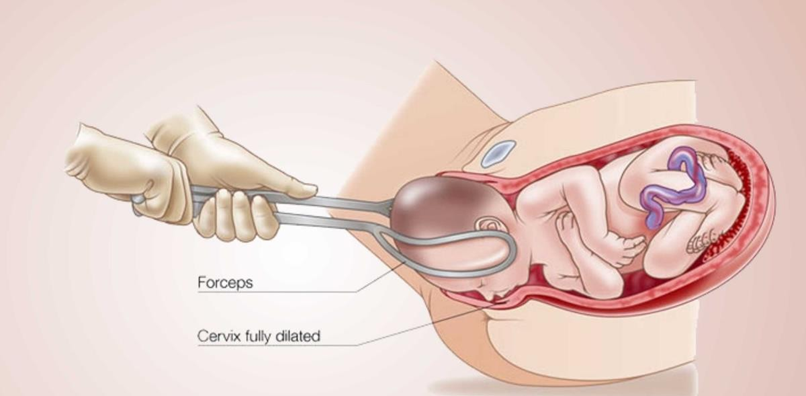A nurse is assessing a newborn following a forceps-assisted birth. Which of the following clinical manifestations should the nurse identify as a complication of this birth method?
Polycythemia
Facial palsy
Bronchopulmonary dysplasia
Hypoglycemia
The Correct Answer is B
Rationale:
A. Polycythemia: Polycythemia, an elevated red blood cell count, is not typically associated with forceps-assisted birth.
B. Facial palsy:
Correct answer. Facial palsy, or weakness or paralysis of facial muscles, can occur as a complication of forceps-assisted birth due to pressure or trauma to the facial nerve during delivery.

C. Bronchopulmonary dysplasia: Bronchopulmonary dysplasia is a lung condition primarily affecting premature infants and is not directly related to the method of delivery.
D. Hypoglycemia: Hypoglycemia, low blood sugar levels, can occur in newborns for various reasons but is not specifically associated with forceps-assisted birth unless there are other complicating factors.
Nursing Test Bank
Naxlex Comprehensive Predictor Exams
Related Questions
Correct Answer is A
Explanation
A.
Rationale:
A. Massaging the client's fundus is the priority action to address excessive vaginal bleeding.
Massaging the fundus helps promote uterine contractions, which can help control bleeding by compressing blood vessels.
B. Emptying the client's bladder may be necessary to relieve pressure on the uterus, but it is not the first priority when addressing excessive bleeding.
C. Providing oxygen may be indicated if the client shows signs of hypoxia, but it is not the first action to address excessive vaginal bleeding.
D. Administering oxytocin may be necessary to help control bleeding, but massaging the fundus is the first step in managing postpartum hemorrhage.
Correct Answer is ["A","C","D"]
Explanation
Rationale:
A. Vacuum-assisted delivery increases the risk of postpartum hemorrhage due to potential trauma to the birth canal and uterus.
B. A history of human papillomavirus is not directly associated with an increased risk of postpartum hemorrhage.
C. A history of uterine atony (inability of the uterus to contract effectively after delivery) is a significant risk factor for postpartum hemorrhage.
D. Labor induction with oxytocin can lead to uterine hyperstimulation or tetanic contractions, which may contribute to uterine atony and postpartum hemorrhage.
E. Newborn weight is not a risk factor for postpartum hemorrhage.
Whether you are a student looking to ace your exams or a practicing nurse seeking to enhance your expertise , our nursing education contents will empower you with the confidence and competence to make a difference in the lives of patients and become a respected leader in the healthcare field.
Visit Naxlex, invest in your future and unlock endless possibilities with our unparalleled nursing education contents today
Report Wrong Answer on the Current Question
Do you disagree with the answer? If yes, what is your expected answer? Explain.
Kindly be descriptive with the issue you are facing.
